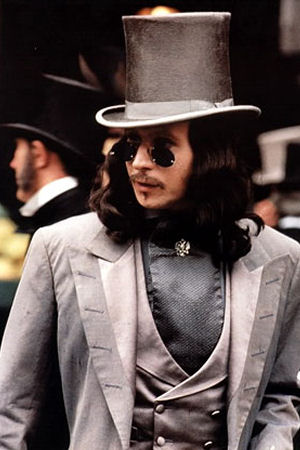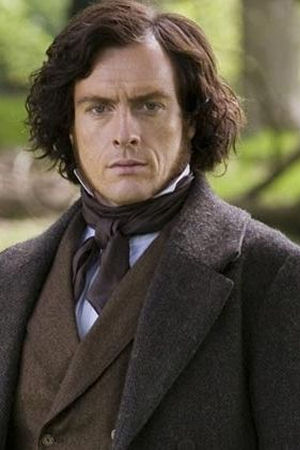Rispondi al commento
Untitled
UP - HELLY - AA !! 
Would you like to have a taste of what Vikings’ life was like?
Well, the answer is : UP HELLY AA !
Each year, on the last Tuesday in January, hundreds of Vikings of all ages fill the town of Lerwick in Scotland’s Shetland Islands to parade through the darkened streets allowing locals and tourists alike to celebrate the historical heritage of the islands.
Don’t worry: this doesn’t mark a perennial Norwegian invasion but the start of Up Helly Aa, Britain’s largest fire festival.
Vi piacerebbe avere un assaggino di com’era la vita dei Vichinghi?
Be’ , la risposta è: UP HELLY AA !
 Ogni anno, l’ultimo martedì di gennaio, centinaia di Vichinghi di tutte le età riempiono la città di Lerwick, nelle Shetland scozzesi, per sfilare nelle strade buie, così da permettere sia agli abitanti del posto che ai turisti di celebrare l’eredità storica delle isole.
Ogni anno, l’ultimo martedì di gennaio, centinaia di Vichinghi di tutte le età riempiono la città di Lerwick, nelle Shetland scozzesi, per sfilare nelle strade buie, così da permettere sia agli abitanti del posto che ai turisti di celebrare l’eredità storica delle isole.
Ma non preoccupatevi: non è un’ennesima invasione norvegese, bensì l’inizio dell’ Up Helly Aa, la più importante “festa del fuoco” d’Inghilterra.
Up Helly Aa is descended from the ancient festival of Yule, which the Vikings held to celebrate the rebirth of the sun. One of the first records about it is dated 1824, when a visiting Methodist missionary wrote in his diary that "the whole town was in an uproar: from twelve o clock last night until late this night blowing of horns, beating of drums, tinkling of old tin kettles, firing of guns, shouting, bawling, fiddling, fifeing, drinking, fighting. This was the state of the town all the night - the street was as thronged with people as any fair I ever saw in England."
L’Up Helly Aa deriva dall’antica festività di Yule, che i Vichinghi usavano per celebrare la rinascita del sole. Una delle prime testimonianze storiche che parla di questa festa risale al 1824, quando un missionario metodista che era in visita alle isole scrisse nel suo diario che: “l’intera città era in subbuglio: dalla mezzanotte di ieri fino a stanotte tardi è stato tutto un soffiare nei corni, battere sui tamburi, picchiare su vecchie pentole di stagno, far fuoco con le pistole, gridare, schiamazzare, suonare violini e pifferi, bere, fare a botte. La città è rimasta in questo stato tutta la notte – la strada era affollata di persone come mai in nessuna fiera finora da me vista in Inghilterra.”

As Lerwick grew in size the celebrations became more elaborate. Around 1870 a group of young men in the town with intellectual interests injected a series of new ideas into the proceedings. First, they improvised the name Up Helly Aa, and gradually postponed the celebrations until the end of January. Secondly, they introduced a far more elaborate element of disguise - "guizing" - into the new festival. Thirdly, they inaugurated a torchlight procession. In the late 1880s a Viking longship - the "galley" - appeared, and as late as 1906 that a "Guizer Jarl", the chief guizer, arrived on the scene.

Quando la città di Lerwick iniziò a crescere, i festeggiamenti divennero più elaborati. Intorno al 1870, un gruppo di giovani intellettuali introdusse nel programma una serie di nuove idee. Per prima cosa, crearono il nome Up Helly Aa, e gradatamente spostarono la festa alla fine di gennaio. Poi introdussero il travestimento (“guizing”), ed infine inaugurarono le processioni con le torce accese. Verso il 1880 apparve nei festeggiamenti una nave vichinga, il "drakkar", e nel 1906 comparve sulla scena il "Guizer Jarl", cioè il “Capo dello Squadrone”.

Today’s Up-Helly-Aa is very close to its 150 years ago predecessors. Up to a thousand "guizers" , i.e. Shetlanders dressed as Viking warriors, parade through the streets of Lerwick. Members of the ‘Jarl Squad’ line the route with paraffin soaked fence posts. Once lit they form a flaming procession which escorts a Viking longship - the "galley" - to its final burning place. As the long ship reaches its destination the men form a wheel of flame before throwing the torches into the galley creating a riotous inferno.
L’Up-Helly-Aa che si tiene oggi è molto simile a quelli che si tenevano 150 anni fa. Un migliaio e oltre di “guizers”, cioè di abitanti delle Shetlands vestiti da guerrieri Vichinghi, sfilano in parata attraverso le strade di Lerwick. I membri dello “Squadrone dello Jarl” tracciano il cammino usando pali di legno impregnati di paraffina . Una volta accesi, li usano per formare una processione fiammeggiante che scorta una nave vichinga - il "drakkar", – al luogo dove verrà bruciata. Quando la nave raggiunge la sua destinazione, gli uomini formano un cerchio di fiamme prima di buttare le torce nel "drakkar", creando un inferno di fuoco.

After the galley has been burnt, a series of performances take place in 11 local halls in Lerwick, with squads and onlookers visiting each hall to take part in the dancing and festivities.
And what about women, you could ask? Well, it could be worse… Women are not allowed to fill the ranks of Vikings and so have to make the most of food, drink, dancing at these events, many of which continue until daybreak.
Dopo che il "drakkar" è stata bruciato, negli 11 locali di Lerwick hanno luogo una serie di manifestazioni, con i membri della squadra e i visitatori che passano di locale in locale per ballare e far festa.
E le donne? vi chiederete voi. Be’, poteva andare peggio… Le donne non possono far parte dello squadrone dei Vichinghi, quindi si devono “accontentare” di mangiare, bere e ballare a questi festeggiamenti, molto dei quali durano fino all’alba.

So, in case you are willing to breath some Viking air, here are the Up-Helly-Aa dates for the next few years ( for further info, have a look here http://www.uphellyaa.org/ ):
2009 - Tuesday, January the 27th
2010 - Tuesday, January the 26th
2011 - Tuesday, January the 25th
2012 - Tuesday, January the 31st
2013 - Tuesday, January the 29th
2014 - Tuesday, January the 28th
Quindi, nel caso vogliate respirare un po’ d’aria… Vikinga, eccovi le date dell’Up-Helly-Aa dei prossimi anni ( per informazioni date un’occhiata qui: http://www.uphellyaa.org/ )
2009 - martedì, 27 gennaio
2010 - martedì, 26 gennaio
2011 - martedì, 25 gennaio
2012 - martedì, 31 gennaio
2013 - martedì, 29 gennaio
2014 - martedì, 28 gennaio














Commenti recenti
7 anni 23 settimane fa
7 anni 23 settimane fa
7 anni 23 settimane fa
7 anni 23 settimane fa
7 anni 24 settimane fa
7 anni 24 settimane fa
7 anni 24 settimane fa
7 anni 24 settimane fa
7 anni 24 settimane fa
7 anni 24 settimane fa